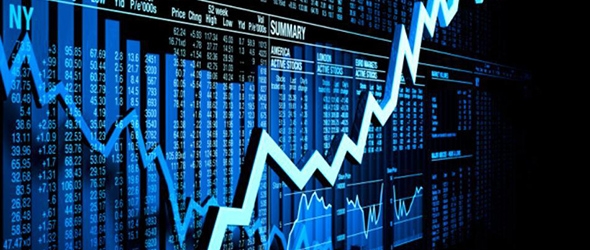Forex trading, which is also referred to as foreign exchange trading, involves the purchase and sale of currencies on a worldwide market. Forex trading is a decentralised market that operates 24 hours a day, five days a week. With an average daily trading volume of approximately $6.6 trillion, the market holds the distinction of being the largest financial market globally.
Forex trading is popular among investors, traders, and speculators because of its high liquidity and volatility. Investors can profit from changes in currency exchange rates by buying and selling currencies at different times. You can trade forex through a broker, an intermediary between the trader and the market.

The Basics of Currency Trading
The foreign exchange (forex) market comprises currency pairs, which are a pair of two different currencies, such as the Euro and the US dollar. In a currency pair, the initial currency is referred to as the base currency, while the second currency is called the quote currency.
The exchange rate between two currencies determines the value of a currency pair. For example, if the exchange rate of the US dollar and the Euro is 1.20, then one US dollar can be exchanged for 1.20 Euros.
Traders can purchase or sell currency pairs based on their market analysis. If a trader expects that the value of the base currency will increase, they can buy the currency pair. If they believe that the value of the base currency will decrease, they can sell the currency pair.
Factors that Affect Currency Exchange Rates
Currency exchange rates are affected by various factors, including economic, political, and social factors. Economic factors affecting exchange rates include inflation, interest, and GDP growth. Political factors affecting exchange rates include government policies, elections, and geopolitical tensions. Social factors affecting exchange rates include consumer sentiment, population demographics, and cultural trends.
Traders must keep up-to-date with news and events that could affect currency exchange rates. Many traders use technical analysis, which includes analysing charts and market data to identify trends and make trading decisions.
Benefits and Risks of Forex Trading
Forex trading provides investors with several advantages, such as the availability of ample liquidity, minimal transaction expenses, and the potential to generate profits from both upward and downward market movements. Because the forex market is so huge and liquid, traders can easily buy and sell currencies at any time, which helps to ensure that there is always a market for their trades.
However, forex trading also carries significant risks. Because currency exchange rates can be highly volatile, traders can experience significant losses if their trades go against them. Additionally, the forex market is largely unregulated, meaning traders must rely on their broker to act in their best interests.
Traders should carefully consider their risk tolerance and financial goals before entering the forex market. It is important to have a substantial understanding of the market and to develop a trading strategy that incorporates risk management techniques.
How to Start Forex Trading
To start forex trading, traders will need to open a trading account with a forex broker. There are many different forex brokers to choose from, so traders should do their research and choose a broker that is reputable and offers competitive pricing and trading tools.
Traders will also need to develop a trading strategy that incorporates technical analysis and risk management techniques. This may involve using charting software, analysing economic data, and monitoring news and events that could affect currency exchange rates.
Traders should also be prepared to invest time and effort into learning about the basics of forex trading. Many brokers offer educational resources, such as webinars and tutorials, to help traders learn about the market and develop their skills.
Before you trade forex with real money, you should consider using a demo account to practice trading in a simulated environment. This can help traders to gain experience and confidence before risking their own money.
It is also important for traders to manage their risk carefully. This may involve setting stop-loss orders to limit potential losses and avoiding over-leveraging or trading with too much capital.
In conclusion, forex trading is a popular and lucrative form of trading involving buying and selling currencies on the global market. Traders can profit from changes in currency exchange rates but must also be aware of the risks involved. To start forex trading, traders should open a trading account with a reputable broker, develop a trading strategy, and manage risk carefully. With the right approach, forex trading can offer significant opportunities for profit and growth.
